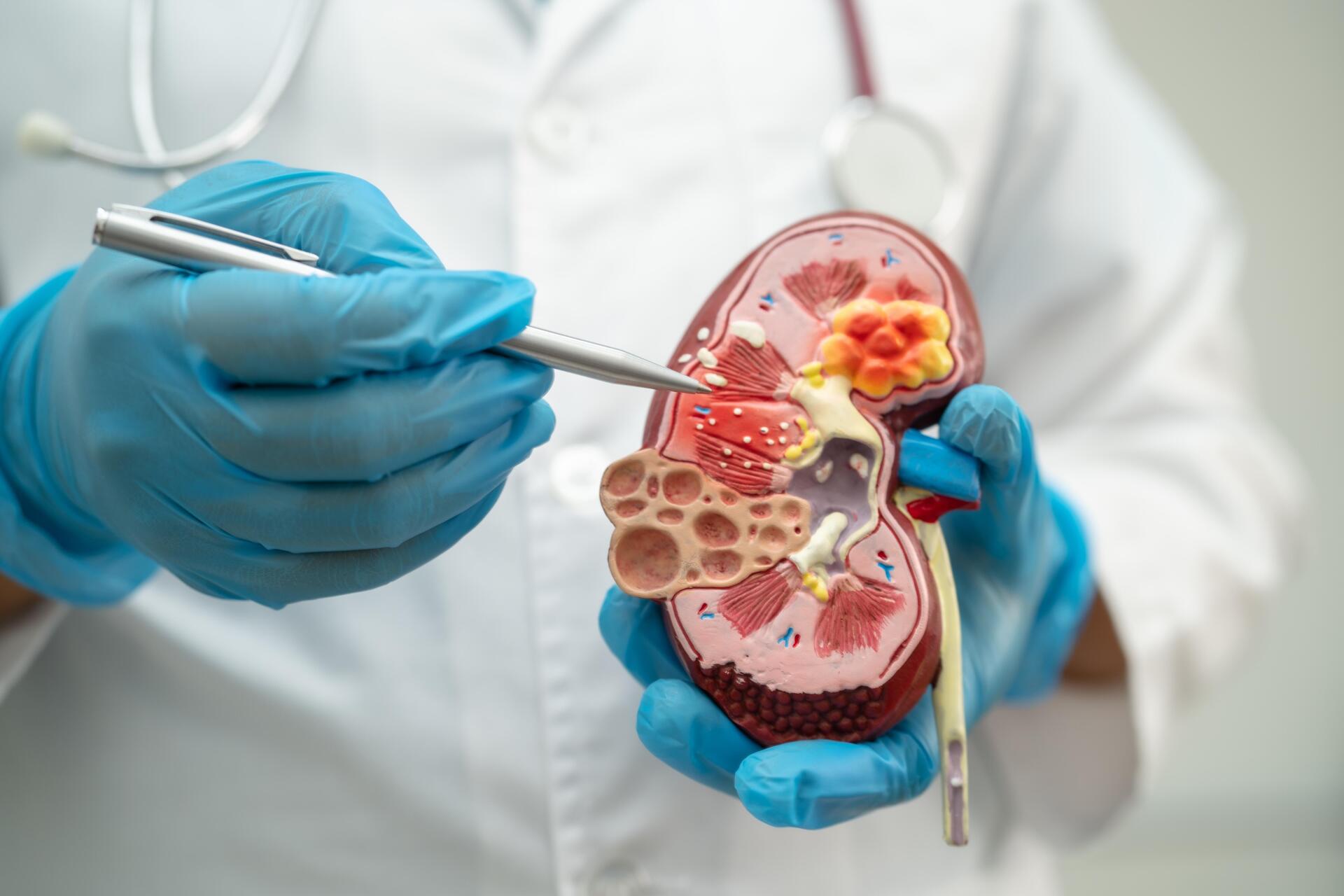
Acute & Chronic Kidney Disease
Acute & CHRONIC Kidney Disease
These two terms sound similar enough, but there are some key differences between acute and chronic kidney disease. We will break down the details about each along with sharing some common treatment options and practical tips for improving kidney health.
What Is Acute Kidney Disease?
The term “acute” can have various meanings based on context and usage, but for our purposes, it means a kidney condition that has a rapid onset, is characterized by sharpness or severity, and has a relatively short duration. That’s good news, as acute kidney disease is often reversible!
Typically, an acute kidney disease–also sometimes referred to as acute kidney injury (AKI) or acute renal failure–is a situation in which a patient’s kidneys suddenly and significantly decrease in function. Because the kidneys moderate the levels of wastes, water and electrolytes in the blood, this sudden shift is very noticeable over the short timeframe of several hours or days. The kidneys simply stop doing their job and this dramatic drop in blood filtration can lead to a dangerous buildup of wastes, along with other system imbalances.
Causes of acute kidney disease vary widely, from simple dehydration or an episode of low blood pressure to heart failure or shock that can reduce blood flow to the kidneys. Some medications, infectious illnesses, and autoimmune disease can also hurt the kidneys and reduce their ability to filter blood. Blockages in the urinary tract may also be the culprit.
Common symptoms of acute kidney disease include:
-
Reduced urine output
-
Swelling in the legs, ankles, and feet
-
Fatigue and weakness
-
Shortness of breath
-
Nausea and vomiting
Because these signs of kidney damage are not always obviously related to the kidneys for the average person, it can be hard to know when to seek medical help. Acute kidney disease can give only subtle hints and symptoms may not even appear until kidney function is severely compromised. If you are experiencing any of these symptoms, it is worth being checked out by a medical professional right away. They’ll be able to do testing to confirm or rule out a kidney-related condition.
What Is Chronic Kidney Disease?
Again, the meaning of terms is key to understanding chronic kidney disease. In this context, “chronic” refers to a condition that continues or occurs again and again, over a long period of time. A chronic condition may also never really subside and can, in fact, get worse. Those with chronic kidney disease (CKD) have to deal with a progressively worsening condition in which the kidneys lose their ability to function over time. Waste is not filtered and excess fluid is not removed from the blood.
CKD symptoms can be very hard to detect in the beginning, accelerating in severity until the damage to the kidneys has been done and then a patient seeks out care from their personal physician, where they are diagnosed with chronic kidney disease. Symptoms for CKD are essentially the same as those associated with acute kidney disease, and can include but are certainly not limited to:
-
Changes in urination frequency
-
Swelling in the feet and ankles
-
Dry and itchy skin
-
Fatigue
-
Muscle cramps
-
Confusion and difficulty concentrating
-
Nausea and vomiting
-
Excessive thirst
Patients who are dealing with untreated chronic kidney disease will likely be feeling sick and uncomfortable, due to the buildup of waste and toxins in their blood throwing off the balance in various body systems. They may also experience related illnesses, like high blood pressure, anemia, weak bones, poor nutritional health and nerve damage. It’s also possible that they’re dealing with diabetes or inflammatory, genetic, or autoimmune diseases that also contribute to poor kidney health. These conditions could be a byproduct of CKD or the root cause of it–experienced and skilled nephrology doctors can help to decipher symptoms and get to the bottom of a patient’s kidney health.
Chronic kidney disease is also an umbrella term for many diseases and disorders of the kidneys, including conditions like:
-
Chronic Renal Disease
-
End-Stage Renal Disease
-
Polycystic Kidney Disease
-
Glomerulonephritis
-
Nephrotic Syndrome
Treating Acute and Chronic Kidney Disease
Treatment for both acute kidney disease and chronic kidney disease focuses on addressing the underlying cause and providing supportive care while also aiming to prevent complications.
For acute kidney disease, treatment may include:
-
Identifying the underlying cause
-
Fluid and electrolyte management
-
Medication adjustments and/or implementation
-
Dialysis
-
Nutritional and lifestyle changes
Chronic kidney disease treatment is similar, but more complex in scope, as the many potential root causes and variables involved can determine the best course of action. Dialysis for a patient with CKD will likely be a long-term regimen of treatment, not a temporary one. Eventually, a patient may also consider having a kidney transplant. They will also likely need to take several medications to manage the effects of their failing kidney on other body systems and functions.
Northeast Ohio Nephrology Associates Is Here To Help
Wherever you are on your kidney health journey, you need to work with a team that is dedicated to you and your recovery or management. When choosing a kidney healthcare team, you want to be sure that you’re dealing with medical professionals who have the qualifications and expertise to successfully guide you through your treatment process. At Northeast Ohio Nephrology Associates, our team of expert nephrology doctors is here to help, with innovative solutions for maintaining and enhancing our patients’ renal health. Contact us today to learn more about the conditions and treatments we cover, and how you can seek treatment at our facility. We look forward to helping you get on a path to better kidney health.
Our Affiliates
Contact Us
(*) - Required field








